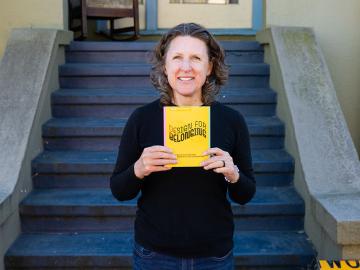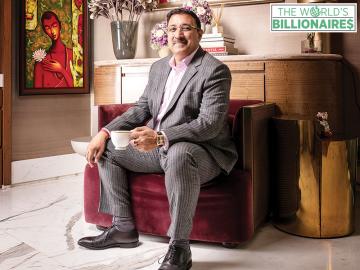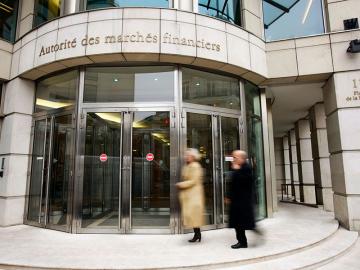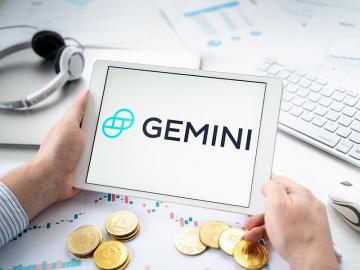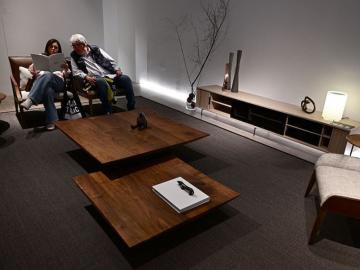How Abhay Soi acquired and made Max Healthcare India's second largest hospital chain
The first generation entrepreneur was an outsider in the healthcare industry, but the way he tackled the Covid-19 crisis showed the world his ability to roll up his sleeves and get things done
Abhay Soi, Chairman and managing
director, Max Healthcare
Image: Amit Verma
On 24 March 2020, Abhay Soi found himself in a pickle. The first-generation entrepreneur had, with the help of private equity firm KKR, bought out Analjit Singh’s stake in Max Healthcare in June 2019. Overnight, he’d gone from running two hospitals in Delhi and Mumbai to 17 spread across north India. On the eve of the nationwide lockdown, the new company had ₹350 crore of Ebitda—hardly enough to service the ₹2,300 crore of debt on its books.
He converted Max Saket in New Delhi and Max Nanavati in Mumbai as places that would treat patients with Covid. When the Delhi health minister was infected, he was admitted at Max. When actor Amitabh Bachchan was infected, he again chose Max. The hospital benefited from the publicity and, Soi claims, received goodwill as, initially, other hospitals were reluctant to treat Covid patients.
The manner in which Abhay Soi tackled Covid shows his ability to roll up his sleeves and get things done. After all, before he became an accidental health care entrepreneur he’d made his career turning around companies. His turnaround of Max Healthcare has made him Entrepreneur for the Year at the Forbes India Leadership Awards. Going forward, his aim is to make Max the largest hospital chain in the country.
Ashish Dhawan attributes Soi’s success to a propitious mix of three qualities. First, he is in the right sector. “I always say—if Sunil Mittal was making bicycle parts, we would never have heard of him,” says the former private equity investor. Second, Soi’s big picture vision and ability to stay focused. For instance, he has no plans to enter Tier II cities. Third, Soi’s focus on profitable growth. Dhawan, who invested in Max Healthcare when it was announced that Soi would take over, says he is pleased with the way the investment has panned out. The stock is up from ₹120 when the combined entity listed in August 2020 to ₹469 on March 15, an annual gain of 61 percent. Market cap stands at ₹44,000 crore.
Also read: FILA 2023, Lifetime Achievement Award: AM Naik - The old-world leader and crisis man
Turning Around Max
In 2018, when Analjit Singh decided to put Max Healthcare on the block, Soi smelled an opportunity. He knew the company had good assets and a brand name that resonated with paying customers. Importantly, the assets were largely in metro cities where it was possible to attract paying customers from smaller cities. If costs could be managed, a quick turnaround could be engineered.Indian investors had seen first-hand the experience of diagnostic chains like Metropolis, Dr Lal PathLabs and Thyrocare. They ran efficient operations with margins above 20 percent and had grown revenues and profits in the mid to high teens for the last decade. Up until then, large players like Apollo had sub 10 percent margins while others like Narayana Hrudayalaya and Shalby were a tad under 20 percent. Surely, there was room to improve.
Aiding Soi was his experience in turning around BL Kapoor Hospital in New Delhi and Nanavati Hospital in Mumbai. He’d brought in doctors, changed the type of surgeries done to increase average revenue per bed and focused on medical tourism. In 2018, Soi’s two hospitals under his company Radiant Life Care were generating ₹110 crore in Ebitda versus ₹240 crore in Ebitda for 15 hospitals run by Max at the time of acquisition.
Here’s Soi’s operating playbook. First, drive efficiencies by cutting costs. Every line item from occupancy, revenue per bed and consumption ratios to doctor payout, personnel and market expenses are benchmarked against competitors in each micro market that Max operates in. “We want to be best in class and we are fanatical about these things,” says Soi.
At ₹66,000 revenue per bed per night, Max Healthcare claims to have the best industry metrics among its competitors. Apollo, which has 10,500 beds across 74 hospitals, registered revenues of ₹14,663 crore in the year ended March 2022. For Max, the numbers were ₹3,931 crore for 3,400 beds across 17 hospitals. Apollo’s profit after tax in the year ended March 2022 was ₹1,108 crore while for Max Healthcare the numbers were ₹605 crore. This despite the fact that 30 percent of beds at Max Healthcare are for government business where payments are routinely delayed.
Usually, hospitals make money on specialties like cardiac, orthopaedic, neurology and oncology. But at Max Healthcare, the focus has also been on narrower sub-specialties—organ specific oncology, bone marrow transplants and organ transplants. These have less competition and are more remunerative. (When people come in for dengue or other relatively simple ailments, the billing rates are lower and the hospital ends up making far less per bed.)
People in the industry say that Soi is also good at treating doctors with respect and managing their egos. He also gives them time to publish their research.
Max also planned to focus on medical tourism, but its plans have come unstuck on account of the pandemic. A heart bypass, which costs $170,000 in the US and $130,000 in the UK, can be done at $4,000 in India. If Soi manages to scale that up, expect revenues from this segment to average ₹90,000-100,000 per bed per night.
All this has meant that investors have now started pricing in future growth. The stock trades at 43 times earnings and has held steady in the last year. Soi had spent a lot of time meeting investors over the last two years and explaining his story. “The industry had screwed up and no one knew me,” he says. “I had to go out and explain my story.” Going forward he plans to wind down investor interactions and focus on expansion.
Also read: Isha Ambani wins GenNext Entrepreneur award at Forbes India Leadership Awards 2023
The Road To Growth
Since the pandemic, the industry has seen a clear shift in patient preference to private hospitals. “Abhay displayed a clear aspiration to expand Max’s footprint across India to make its services more accessible to patients, and the timing was advantageous given the wide-spread demand by patients for superior medical treatment,” says Gaurav Trehan, partner and head of KKR India. KKR and Soi worked together in the acquisition of Max Healthcare. KKR has since sold its stake.Equally, Soi is clear of what he doesn’t want to do. Unlike Apollo, he doesn’t see himself as a pioneer. He has no plans to go into cities where other hospital chains don’t have a presence. There are 21 cities where he sees an opportunity for 0.5 million sq ft hospitals. And that’s enough to keep him busy.
Lastly, there are two future levers of growth that Max plans to tap into—diagnostics (MaxLab) and home care(Max@Home). At MaxLab, the company has recently added 400 franchisees. These take time to stabilise as investments have to be made in training and marketing. In FY22, MaxLab had revenues of ₹104 crore. Compare that with the ₹2,000 crore of Dr Lal PathLabs and the scope to grow is immense.
Max@Home, which provides home health care services like ICUs, X-rays and nursing procedures, had revenues of ₹112 crore in FY22. As of now this segment is not catered to by insurance companies, limiting its pace of growth, but Soi says he has a few aces up his sleeve here as well. Watch him and this space.
Check out our Festive offers upto Rs.1000/- off website prices on subscriptions + Gift card worth Rs 500/- from Eatbetterco.com. Click here to know more.
(This story appears in the 31 March, 2023 issue of Forbes India. To visit our Archives, click here.)

